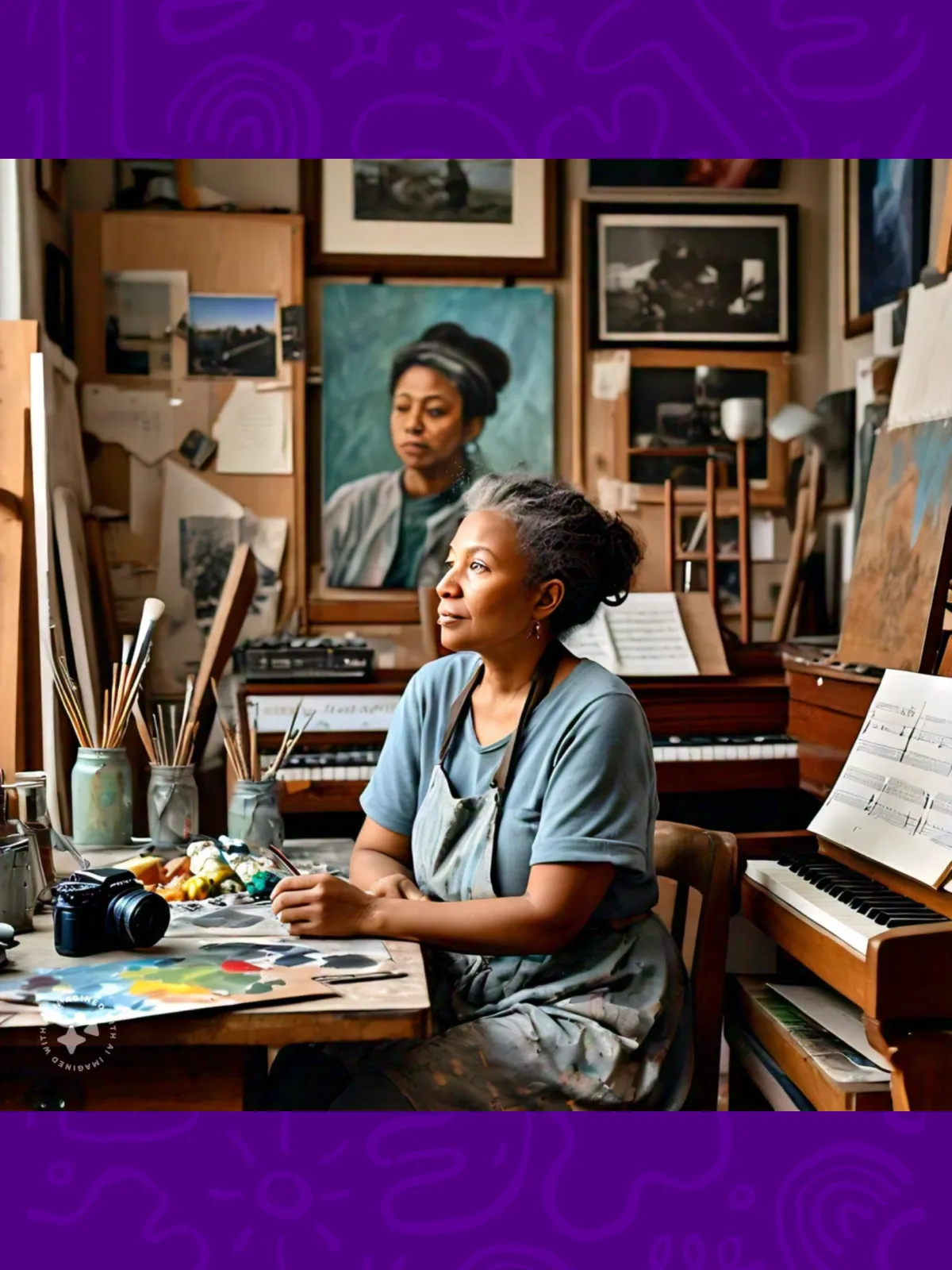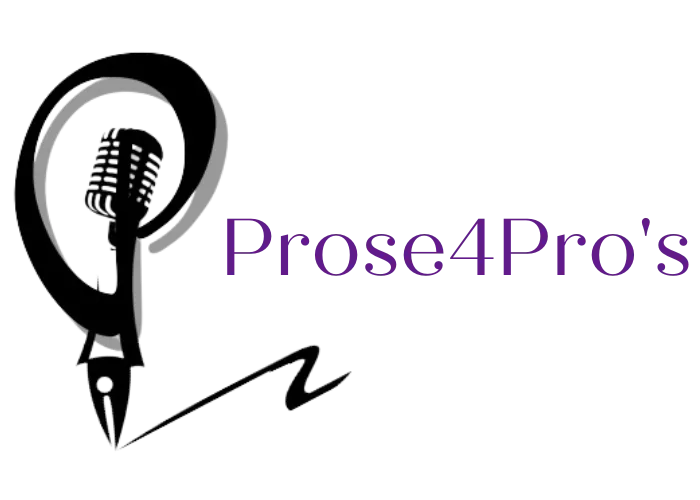
Who Owns Your Creativity
Who owns your creativity? Here’s the creative investment strategy you need now
A nurse friend called me to tell me how a certain university-associated hospital, which had originally rejected her research after stringing her along for months, was now not-so-subtly trying to claim it.
And she was laughing about it.
The reason my nursing friend was laughing was that she recalled our conversations about how to brand herself and shift toward consulting. We remembered how well-meaning colleagues had directed her about exactly how she should share her work in all the traditional ways. But she also remembered how I had helped her to think about the difference between her research and her creativity. Sometimes we are too close to the work to know the difference.
We set up a strategy for owning the creativity that had emerged from her research. Yes, the institution and academic publications could have access to the research, but NO, they could not have what she had created as a result of it. She took the steps to own her creativity.
For most of us, this raises an important question: If I work for someone while I create something, who OWNS it? If I take this (most often insulting amount of) professional development money for the weeks or months I spent developing this project, who gets to use it?
Think about that. Why would we actually ASK who gets to own what WE have created?
I’ll tell you why: intellectual property. At my university, if you create an online course on their platform and accept the professional development funds for doing so, that course–everything in it–belongs to them. They can assign others to it. They can use it when you’re gone. They can multiply it in whatever way they choose. You’ve officially packaged and sold every word of those ideas. Also, if you used the money to purchase things, they will require those things back should you leave employment. #Fact.
By the way, if you don’t take the professional development funds, they can still use your course. They can multiply it with new butts in every seat. They can build a reputation with it. Hey, don’t try to act brand new about it; they hired you for your expertise and potential. They did not hide that, even if you chose not to see it that way. It may even be in the fine print of your contract, or in that one section of your employee handbook that you might have skimmed over too quickly.
And that raises another question: Do you even know the IP policy for your industry or institution?
Welcome to the real business of education.
In a fantastic LinkedIn learning session by Rukayaku Tijani of Firm for the Culture, Tijani broke down some key components for understanding trademarks, copyrights, and patents. I came away meditating once again on the synergistic relationship between creativity and innovation. What is also striking to me is how much that complex economy is tied to our freedom.
Here’s a takeaway for Creatives and Academics attached to institutions: You are either deliberate about owning your creativity, in all its forms, or you are submitting to being trained–or confused–into giving it away. The problem isn't the institution necessarily. The problem is that many of us aren't convinced that our creative production has value. And others think it's too difficult or too late to figure that out.
Unfortunately, we can be distracted, overwhelmed and we can get in our own way.
How? What does it mean when Playdoh is out here literally owning an actual SMELL, and we are busy debating whether we should own the thoughts in our own heads?
Case in point: Another friend of mine reached out a few months ago because she had a request from a university where she is a clinical/industry hire Instructor. the department was very specific about their requirements: They wanted to both hire her to teach and purchase the slides she created for the presentations she would in the course. She was unfamiliar with the structure of such a request (it was strangely specific), and so she wanted my advice about whether the amount seemed appropriate.
Interesting. The approach to intellectual property and teaching in academia is changing. This was a direct request for ownership of her creative work. And while she was focused on being good at teaching, they were busy trying to secure access to use and replicate her work.
Now, don’t get all resentful; this is all part of the business of higher education to sustain itself. But my point is that we have to evolve in our thinking. We are focused on debating the ethics of AI for making sure students don’t cheat, while others are likely considering how AI could sustain the business of education without a commitment to instructors. It’s a matter of focus and distraction.
Question: What is the necessity of the Instructor in an online course when images and sounds are combined with their creative intellectual property? I’m a futurist, so I’m both excited that we are having this conversation and determined that we, as Creatives and Academics, evolve enough to respond to that question.
My advice for this 21st century landscape: Recognize and ACT on your value. Choose a strategy that sustains you–one that provides for your freedom and supports your creative production.
First, we have to agree that intellectual property drives innovation and sustains institutions. Second, do some “future math” and figure out the profit margin when giving away the creative parts of your work. Third, write yourself that reality check.
Ready to get serious about your brand yet?
My nursing friend’s laughter was the result of a (quiet, subtle) shift into creative ownership. So, even though she was an employee, when she went to present her work to the higher ups, it was as the Creative innovator that she is. When she was asked to implement her program, it was as the owner of her intellectual property. And when she was asked to speak at one of the most prominent conferences in her industry, it was as a researcher ready to create impact every hospital in the nation. So, when the institution came running to get connected to her success, she wasn’t surprised…and she handled it like a Boss.
So no, it wasn’t the potential fight over her work that my nursing friend was happy about. She’s a black woman, so she already knows the drill. She’s seen it and been there before. She knew that her institution would stamp their name on it, rally to market it, and cheer the innovation as institutional excellence. They hadn’t even offered her congratulations before grabbing at her work.
She knew they would shake her hand and promptly leave her behind.
(Anyone reading this who doesn’t believe it happens this way: Go ahead and tap your black friend and ask them. And before anyone messages me about how this happens to lots of people who aren’t black women, please pause and consider that these power moves always start with those who are most vulnerable to them. If it’s happened to others, it has already happened to black women and gone unchecked, covered up, or otherwise mis-handled. If it didn’t happen to us first, it’s more likely because we weren’t even allowed to be there.)
Fast forward and my friend’s research is the foundation of a consulting brand. She is piloting her program with registered nurses all over a major hospital. Her work has the potential to change nursing practice in every hospital.
And she is doing all of it under the banner of a brand she didn’t fully embrace she hit her 60s. And now she is set up to have a legacy no one can take from her. #NeverTooLate
If you’re curious about how to evolve in a way that creates a pathway to freedom and protects your creative and intellectual property, I have a few suggestions:
Determine current industry practices and options. How does consultancy work in your industry and what is the scope of such work? What are the expectations?
Consult IP policies and procedures in your industry/university. What are the rules in play for you if you develop new, innovative systems or curriculum? Here’s an interesting site I found if you’re curious about university policies: WIPO: The World Intellectual Property Organization.
Determine what is yours, then protect it. Read and reach out to your attorney (friends) about IP protection. Take a gander at Rukayatu Tijani’s site or get on her mailing list to learn more about IP: Firm for the Culture. (I’m not affiliated with any kind of kick back on this: I’m just all about a sista shout out and Ruki is giving “ten toes down” energy.)
Boss UP. Put the structures in place to monetize your creative, innovative insight NOW. Be ready for more opportunities when they come. It’s time to change your mind about your worth and get out of your own way!
Unfortunately, so many of us–particularly women–are giving our freedom away without even realizing it. We’re doing it because we’ve been trained to do it. We are committed citizens of systems and institutions that should be the platforms from which we launch our own creative energy into the world. Institutions are not, and were never meant to be, the source of our power.
Be thankful. Be grateful. But also be smart. Invest in your freedom.
–Dr. Helane
Follow Me!

Facebook
Instagram
LinkedIn
Youtube
TikTok